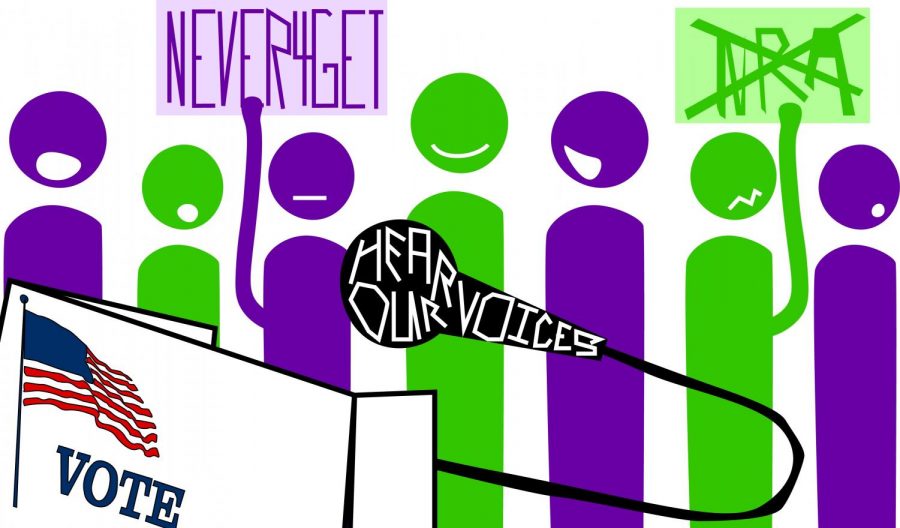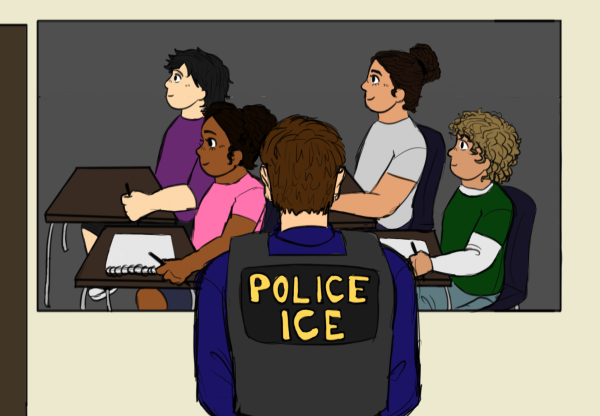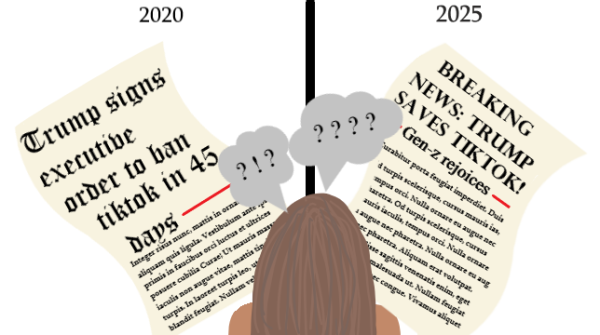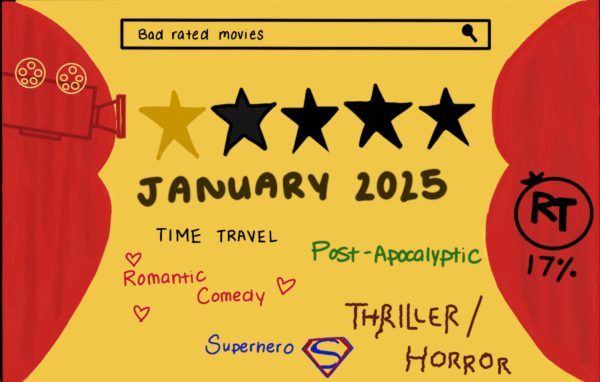Yes/No: Should the voting age be lowered to 17?
Yes.
By: Alexa Vasquez
Low-income families with minors struggle to pay the rising costs of housing in California. If given the opportunity, these minors would likely vote YES on Proposition 21, which would allow cities and counties to implement rent control for certain residential properties over 15 years old.
Many minors work hard and devote themselves to their studies all for the sake of getting into their dream college, yet aren’t a part of a minority group. They would possibly vote NO on Proposition 16, which would continue the ban on affirmative action practices created by the ballot proposition that amended the state constitution to prohibit state governmental institutions from considering race, sex or ethnicity.
Then there are minors who care deeply about all of these propositions and avidly wish to participate in the political decisions that will shape their future, but are prevented from voting due to their age. These minors would vote YES on Proposition 18, which would allow qualifying 17-year-olds to vote in primaries or special elections if they are 18 by the general election.
Although it would only bring the age restriction for voting down by one year, voting YES on Proposition 18 is a pivotal step in the right direction for minors, as it would be giving students access to an entirely new level of political engagement. It’ll be the kind of involvement minors have actively desired as followers of politics, or one that they might take further interest in now that the door is open to them.
The current age requirement to vote in the state of California is 18 years old, while Proposition 18 aims to lower that restriction to 17. Even if the limitations are eliminated for only one more age group, checking YES will make more of a difference to minors than what may be perceived at first glance. One of those differences is that it would give minors the opportunity to shape the world they’re going to enter as adults after graduation.
As the new generation, it’s important for students to understand that any actions or decisions that are made the next few years will inevitably impact them and shape the world they grow up in post-graduation. While they may not be living in it yet, the world is industriously being shaped into the society that students will live in beyond their high school years, and having some sort involvement in deciding what that society is going to look like is crucial.
Decisions like those involving the current environmental crisis are pivotal for the future, and the current laws dictating how the government is handling it were mostly decided by people belonging to an older generation who will not have to live out the consequences. According to The U.S. News, “64% of people ages 65+ voted in the 2018 election, which was the best turnout of any age group.”
By having an avid voice in the matter, the generation of the future could ensure that the decisions being made at a government level are those of a future that they want to live in. Simply being a student receiving education on much of the subject matter being discussed in politics gives minors another level of validation.
Even as minors, students are encouraged to become familiar with the different policies and laws that could be passed, as they will more often than not be affected by those that are approved and eventually applied by the government. If students are being actively educated on matters such as the environmental crisis, immigration policies and government as a whole, then it would give them more qualification to vote than most average middle aged adults. These matters are being integrated into their curriculums and, thus, they gain a further extent of knowledge on the subjects than the generation that came beforehand— the generation that is making these decisions for us.
Dropping the required age to 17 likely wouldn’t require much of an incentive to encourage 17-year-olds to vote, as the current generation of minors are actively engaging in politically charged conversations and discussing government decisions with the limited platforms they have access to. The current age is one of social media activism, and a variety of movements have sparked trends in social media activism towards politics that have yet to die down. According to Foreign Affairs Review, minors have taken to social media as a means to “amplify their voices”, so giving them the ability to vote would allow for an even greater effect.
The result of the movements, such as the Black Lives Matter movement, have given the world a generation of minors that go to lengths to inform themselves on political subjects and spark conversations about them through social media. When it comes to topics such as immigration, economics, propositions and presidential candidates, minors are having real conversations and sharing perspectives on the matters that they want to make a change in in their version of society.
Giving minors the ability to vote would allow them to mobilize their political efforts to an outlet that could make a significant contribution towards real government decision-making. In other words, it would give them an even greater reason to work for the changes they want to see in the world. A survey done by Hamilton University found that 95% of young people surveyed indicated that political issues were very important to them, and by giving an upcoming generation the chance to voice their opinions on those issues, we would be putting the future in their hands.
Even when looking at minors who aren’t as interested in political matters, simply giving them access to a different type of involvement than they had before could help encourage political involvement in the future and build interest in potentially becoming involved as time progresses.
Although the change would only be lowering the level of entry by a year, it is important to remember that that one year difference could be the change that gives the future of our world back into the hands of many people who care about it: minors. By voting YES on Proposition 18, voters would be allowing minors to get involved in the shaping of the world they’d be living in by graduation and would not only allow politically active students to further invest themselves, but also build engagement with those that have yet to show that interest. The future belongs to the people that it was promised to, and minors are ready to shape that future into a world that’s worth living in to them.
No.
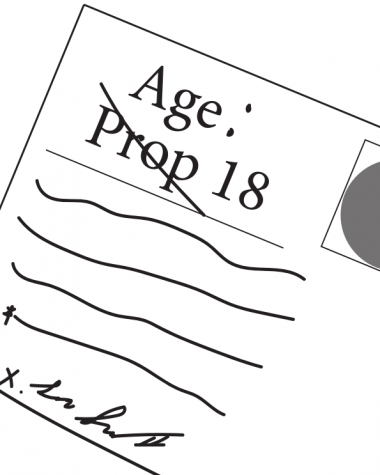
By: Luis Suarez
As Assembly Constitutional Amendment Number 4 states, California is faced with the possibility of Proposition 18 being passed, which would allow 17-year-olds to vote in primary and special elections if they turn 18 by the subsequent general election. The Californian voters would experience a large increase in young voters whose ideals are likely to be undeveloped; most 17-year-olds still need to be taught more before exercising their right to vote.
Child voters would simply be that; children, not yet what the US National Library of Medicine National Institutes of Health acknowledges as mature, legal adults capable of reasonable judgment.
Previous laws have already been written based on these considerations, such as the title on a minor’s provisional license, which does not expire until the day of that child’s 18th birthday. Other examples include the national discouragement and regulation of those under 18 viewing R or NC-17 rated films or TV-MA programming.
While the supporters of Prop 18 may argue that 17-year-olds do participate in this nation as any other American adult would, that is simply not true. While, yes, children are responsible for paying taxes and following the laws just like any other citizen, they do not handle further taxes nor own property that are seen as a standard for any citizen. Most children don’t work, either; the Pew Research Center revealed that last year, only 29% of adolescents were in the workforce.
While opposing Prop 18 means preventing minors in California from voting, that does not mean that it’ll denounce those citizens from taking part in politics. Becoming informed, mature Americans is the goal the opposition hopes to have out of every citizen.
Any citizen would still be encouraged to involve themselves by understanding the basics of government and politics. In high school, one can have hands-on experience with certain activist or political organizations of interest while they’re young— all before they have solidified their beliefs and their voting decisions that they are truly content with.
While voting NO on Proposition 18 may steer away Democrat voters, based on the proposition’s support from the California Democratic Party (CDP) and its opposition by the California Republican Party (CRP), I urge people to leave aside sectionalist ideals in favor of reason— all in order to confirm that more sensible Americans vote. Doing so would ensure that those Americans who are competent to vote in our local, state and national elections help prosper enriching and valuable legislation for our communities.

Writing can be a ridiculously painful thing to endure, but I think that giving it up would be even worse. After all, who doesn’t like a challenge? I’m...
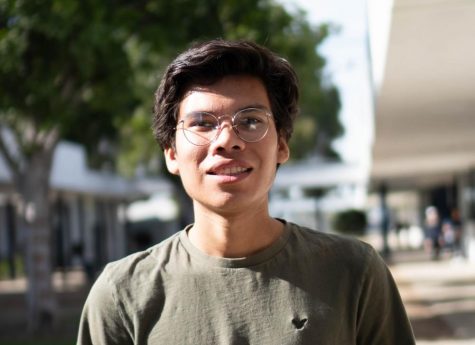
I’m a senior at Bonita Vista High and a second year staff member. I love to take photos of scenery and events all around me and I find that taking photos...
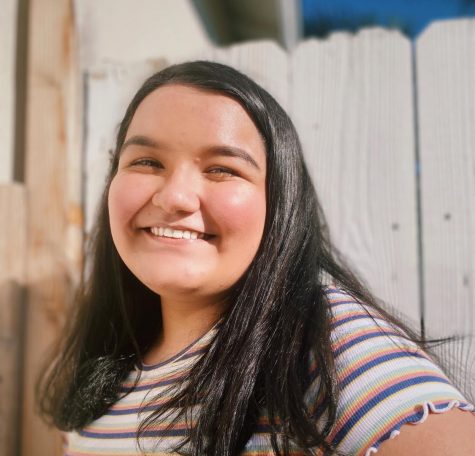
My name is Kara Barragan and this is my fourth and final year with the Crusader. As a freshman I was on the lookout for an outlet where I could put out...

